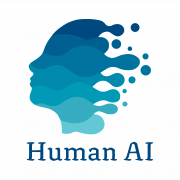AI for Good: Artificial Intelligence in the Service of Sustainable Development
AI for Good is more than a platform—it is a bridge between technological innovation and global well-being.
Artificial intelligence (AI) is already a key tool in tackling some of the most urgent challenges of our time. From climate change to digital equity, this United Nations initiative is leading the way to ensure that AI is not only innovative, but also inclusive and responsible.
Through its commitment to the Sustainable Development Goals (SDGs), AI for Good connects global leaders, innovators, and decision-makers, transforming the potential of AI into concrete solutions that serve both people and the planet.
What is AI for Good and Why Does It Matter?
With just five years remaining to reach the SDGs, AI for Good acts as a bridge between innovators and key sectors. Its mission is clear: to use AI in a trustworthy way to address global challenges such as climate change, health, education, and digital equity.
As Doreen Bogdan-Martin, Secretary-General of the ITU, stated:
“In 2024, one-third of humanity remains offline—excluded from the AI revolution. This digital and technological divide is no longer acceptable.”
AI for Good Global Summit 2024
The latest edition, held in Geneva, was a vibrant stage for innovation and reflection. From robots interacting with attendees to panels on inclusive governance, the summit showcased how AI can be a powerful force for good.
Among the standout highlights:
- Bioniks, a Pakistani startup creating affordable, brain-controlled bionic prosthetics.
- Ultrasound AI, a women-led project in the U.S. aiming to improve prenatal care through advanced analytics.
- Anti-disinformation technologies, used by the United Nations Development Programme (UNDP) to detect suspicious content during electoral processes.
In addition to the innovations presented, the summit emphasized the urgent need for ethical governance to ensure that these technologies benefit everyone in an inclusive and equitable way.
The summit didn’t just present ideas—it showcased real-world solutions with practical applications:
- Bio-inspired drones for disaster rescue operations.
- Brain-computer interfaces, enabling people with disabilities to control devices with their minds.
- Social robots, like Leka, designed to support children with neurodevelopmental disorders.
The success of these initiatives serves as an inspiration to continue the conversation and drive innovation in future editions of the summit.
Upcoming Global Summit: AI for Good 2025
With a strong focus on global collaboration, the next edition of AI for Good will take place from July 8 to 11, 2025, in Geneva. The event promises to remain a hub for inclusive innovation, fostering international standards and technological solutions aligned with the Sustainable Development Goals (SDGs).
How Does Human AI Fit Into This Global Vision?
Human AI: Artificial Intelligence for Good
At Human AI, we share AI for Good’s vision of putting artificial intelligence at the service of people and sustainable development. We believe in technology that not only measures skills and competencies but also enhances human well-being, inclusion, and educational progress.
Our Commitment to the Sustainable Development Goals (SDGs):
- SDG 4: Quality Education – We promote the assessment and development of socio-emotional competencies to improve learning and training processes.
- SDG 8: Decent Work and Economic Growth – We help companies and organizations identify and develop human talent in a fair, objective, and inclusive way.
- SDG 10: Reduced Inequalities – Our technology is designed to eliminate bias and promote equitable opportunities in both education and employment.
- SDG 17: Partnerships for the Goals – We collaborate with academic institutions, businesses, and governments to scale solutions that create a positive impact on people and society.
At Human AI, our mission is clear: to humanize technology and ensure its use is ethical, inclusive, and focused on empowering human potential. Because we believe that AI is not an end in itself—it is a tool in the service of human development.
As Doreen Bogdan-Martin, Secretary-General of the International Telecommunication Union (ITU), reminded us:
“The future doesn’t begin with algorithms, but with us. In our brain—the most complex, powerful, and creative computer the world has ever known.”
Are we ready to lead this transformation and take responsibility as the generation of AI for Good?
👉🏼 Learn more about how we’re working to build a more human-centered society through technology.
👉🏼 Want to see it in action? Request your demo here: https://tu-demo.humanaitech.com











